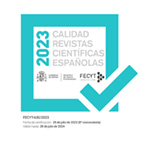Academic Freedom and 21st Century European Universities
Resumen
It is argued that university education has a moral and social function in society. Its purpose is to provide a liberal education (developing the intellect by challenging it to grapple freely with difficult ideas), the development of new knowledge and the provision of trustworthy, disinterested research. To serve society in this way safeguards are necessary: a separation from the state, giving institutional autonomy and academic freedom in teaching and research. With the rise of extreme free market capitalism and the "knowledge society", these safeguards are being eroded: national governments, partly through the ramifications of the Bologna convergence process, are in the process of moulding universities to the needs of the market, and now see the accommodation of students to the workplace as the principal, or indeed only, objective for a university education. Example of the consequences of these changes are discussed, including the corruption of research integrity and erosion of individual liberties.Descargas
Descarga artículo
Licencia
La revista Logos. Anales del Seminario de Metafísica, para fomentar el intercambio global del conocimiento, facilita el acceso sin restricciones a sus contenidos desde el momento de su publicación en la presente edición electrónica, y por eso es una revista de acceso abierto. Los originales publicados en esta revista son propiedad de la Universidad Complutense de Madrid y es obligatorio citar su procedencia en cualquier reproducción total o parcial. Todos los contenidos se distribuyen bajo una licencia de uso y distribución Creative Commons Reconocimiento 4.0 (CC BY 4.0). Esta circunstancia ha de hacerse constar expresamente de esta forma cuando sea necesario. Puede consultar la versión informativa y el texto legal de la licencia.











